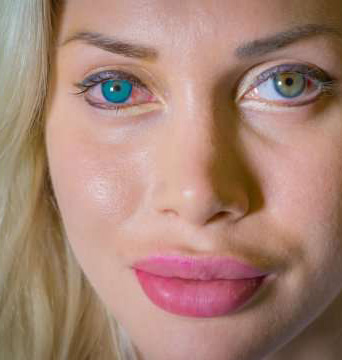

Eye healthcare in many African countries continues to face challenges. High costs of medical treatment, long waiting periods, and a limited number of advanced medical facilities contribute to a system that struggles to meet the growing needs of the population. Patients often endure extended delays before receiving proper diagnosis or care, while the prevalence of eye diseases remains high. Eye care, such as optic neuritis treatment, is hard to come by, complicating the living and healing process of the patients.
These are the reasons why Kenyan, Ethiopian, Tanzanian, Congolese, Ugandan, Ghanaian, Zambian, Cameroonian, and Rwandan citizens visit India. India provides the best and most economical optic neuritis treatments to African patients. The best hospitals for optic neuritis treatments in India are equipped with the latest machines and have the most skilled doctors. Patients almost have no waiting time there. Optic neuritis treatment in India is cost-effective and very efficient as well. Indian doctors understand eye diseases very well and are very good at their treatment. Patients get proper care and improved results. This makes India a dependable destination for patients in search of optic neuritis treatment.
Optic neuritis is inflammation of the optic nerves, which are a bundle of nerve fibres that connect the eyes with the brain. The optic nerve plays a vital role in vision by transmitting visual information from the eyes to the brain. When it becomes inflamed, the nerve cannot effectively carry signals, leading to vision problems. Also, ocular neuritis, another name for this disease, often causes blurred or lost vision in one eye. Sometimes, it can affect both eyes simultaneously.
Common symptoms of the optic neuritis condition include pain when moving the eye, temporary vision loss, and colour vision changes. The condition usually affects adults, especially women aged 20 to 40, and may be associated with diseases like multiple sclerosis (MS). Multiple sclerosis is a neurological disorder that damages the optic nerve and brain. Other causes can include infections, autoimmune diseases, and neuromyelitis optica.
Often, optic neuritis treatment in India includes steroid medications to reduce inflammation and speed up recovery. Most people regain their vision within a few weeks to months, even without treatment. Understanding optic neuritis is important for early diagnosis and effective management of related health conditions.
There is no clear understanding of what causes optic nerve neuritis. Inflammation and myelin damage are thought to be the consequence of the immune system wrongly targeting the tissue protecting your optic nerve. In a normal situation, the myelin facilitates the rapid transmission of electrical signals from the retina to the brain, which is responsible for converting these impulses into information about vision. This process is thrown off by optic neuritis, which causes visual problems. There are other complex causes that lead to optic neuritis, such as:

The myelin coating that protects the brain's nerve fibres is attacked by your immune cells in multiple sclerosis. After a single episode of optic neuritis, a person's lifetime chance of having multiple sclerosis turns to around fifty per cent, according to research conducted on persons who have had optic neuritis. If an MRI of your brain indicates that you have lesions, your chance of getting multiple sclerosis after having optic neuritis will rise even higher.
The spinal cord, optic nerve, and brain inflammation are all possible outcomes of this illness. Similar to multiple sclerosis and neuromyelitis optica, inflammation may reoccur. Neuromyelitis Optica (NMO) is a more common complication than MOG attacks.
Eye and spinal cord inflammation are common with the optic neuropathy condition. The symptoms of neuromyelitis optica are similar to those of multiple sclerosis; however, unlike MS, neuromyelitis optica seldom results in nerve harm to the brain. Neuromyelitis optica, on the other hand, is more serious and generally results in a slower recovery after an episode than multiple sclerosis.
Basically, optic neuritis can cause the following symptoms:
In most cases, a doctor will first enquire about your complaints and previous health conditions. After that, a physical examination will be carried out. To provide you with the most effective therapy, your physician may want to do further tests to identify the root cause of your optic nerve neuritis. Blood testing and a study of cerebrospinal fluid are also possible ways to diagnose optic neuritis.
The physician could also ask for imaging tests such as:
Optic neuritis often resolves itself without medical intervention. Your physician will most likely provide high-dose steroid medications to you via an IV to reasonably facilitate your recovery. This medication may also reduce your chance of other issues associated with MS, or it may postpone the condition's onset if it is the reason. However, although these optic neuritis treatment in India will help reduce the swelling, your eyesight might not improve due to taking them. Your physician could recommend different therapies, such as the following, in certain circumstances:

You may also hear it referred to as plasma exchange in addition to intravenous immune globulin, or IVIG. This is a pharmaceutical product that is created using blood. The medication is injected into a vein in the arm. It is expensive, and the medical community is not sure it is effective. But if your symptoms are severe and steroid treatment hasn't helped you, or you can't take them, this might be possible. If you are diagnosed with optic neuritis, and an MRI of your brain reveals that you have lesions, you may be eligible for this therapy on an ongoing basis.
Vitamin B12 Optic neuritis is an extremely uncommon condition, but it may occur when the body does not get enough of this vitamin. In these circumstances, physicians may recommend higher doses of vitamin B12.
Your physician will treat the underlying ailment if they determine your optic neuritis causes.

We take pride in assuring our patients' complete safety during these treatments and providing them with the best possible post-operative care. Our goal is to ensure that our patients receive the greatest possible results at the most affordable optic neuritis treatment in India prices.
Dr. Suraj Munjal is the best eye specialist in India. He has done many refractive surgery, keratoconus surgery, and cornea transplants with a wide variety of complicated cases. He also has expertise in all types of LASIK eye surgeries.

Dr. Suwarn Chetan is an ophthalmologist specializing in Occuloplasty and LASIK surgeries. He is one of the top eye specialists in India for cataract eye surgery, refractive eye surgery, and pediatric ophthalmology.

Dr. Neeraj Sanduja is the most experienced eye specialist in India. His expertise includes LASIK surgeries, diabetic retinopathy, corneal transplant, ocular trauma, retinopathy of prematurity, and macular holes.


A lot of people from African countries like the Democratic Republic of Congo, Kenya, and Cameroon are visiting India for optic neuritis treatment. As the cost of optic neuritis treatment in India is very low, people from across the globe are visiting India for the treatment. The Indian eye hospitals have the latest technology and the best eye specialists. For different types of optic neuritis, different treatment procedures are performed in India, such as antibiotics, steroid medication, immune prophylaxis, long-term steroid therapy, plasmapheresis, and more. The cost of optic neuritis treatment in India is:
| Treatment | Cost |
|---|---|
| Optic Neuritis Treatment in India | $3,000 |
There is a significant correlation between optic neuritis and multiple sclerosis. Multiple sclerosis causes demyelination throughout the brain and spinal cord. Multiple sclerosis may produce various symptoms, like blindness, double vision, weakness in the limbs, trouble walking, and lack of bladder control. Multiple sclerosis patients who get optic neuritis as their initial symptom are between 15 and 20. After the onset of the other multiple sclerosis symptoms, optic neuritis will manifest in an additional 30 percent of persons with multiple sclerosis at some point in their lives. It is a fortunate fact that most people diagnosed with severe optic neuritis and who have a healthy brain MRI without any further signs of demyelination do not go on to develop multiple sclerosis.
There are several options for optic neuritis treatment in India that can help you manage the condition. It is advised to consult your doctor before trying out any of these treatments:


Get the Eye color you've always dreamed of
Connect Today
Opt for successful eye color change surgery
Plan Surgery
Remove glasses with SMILE LASIK
Get Cost